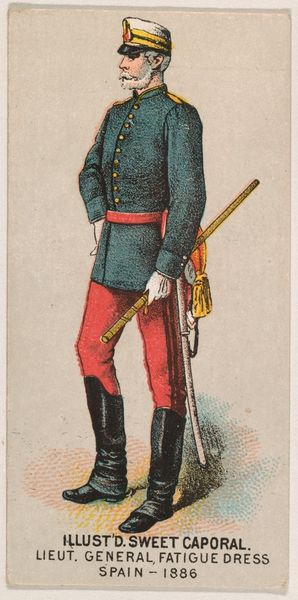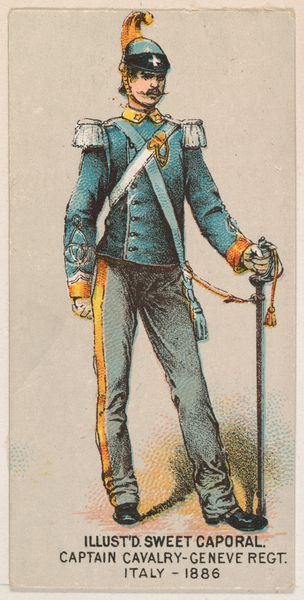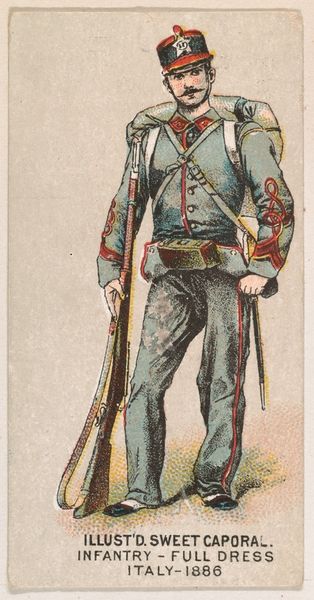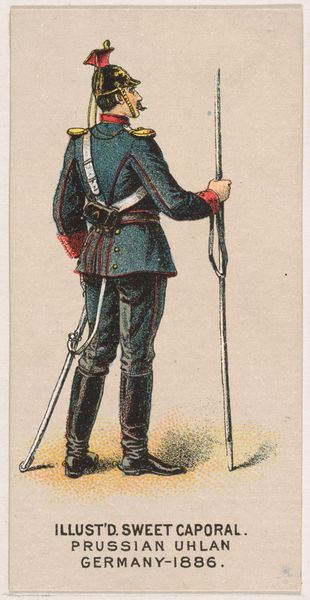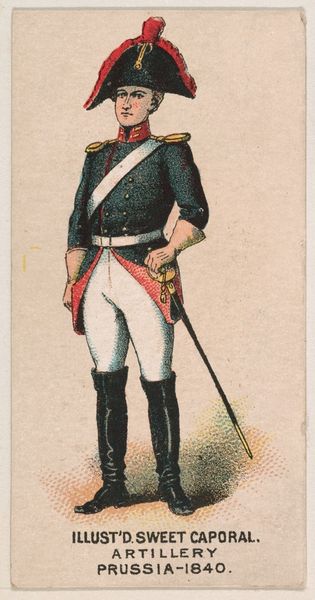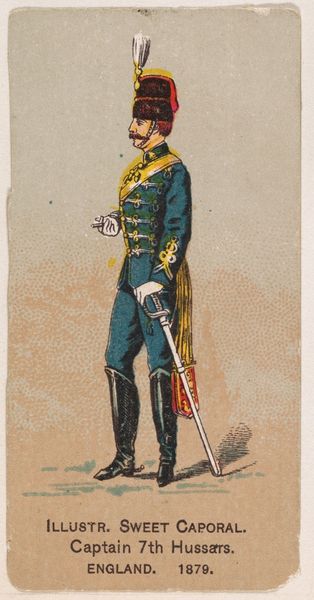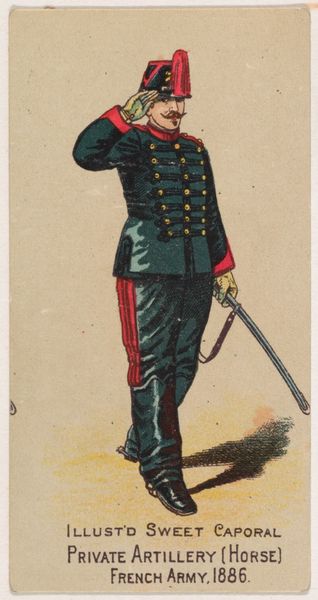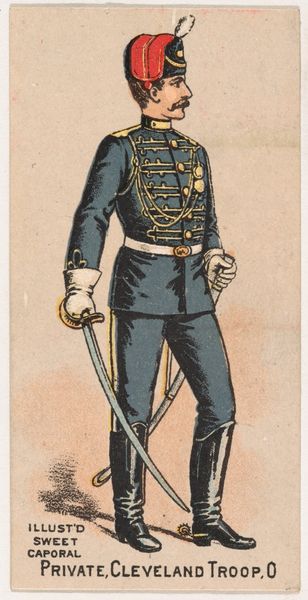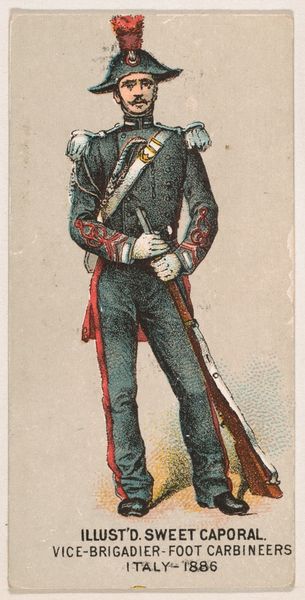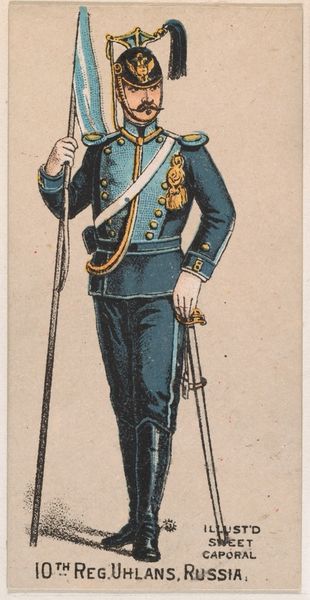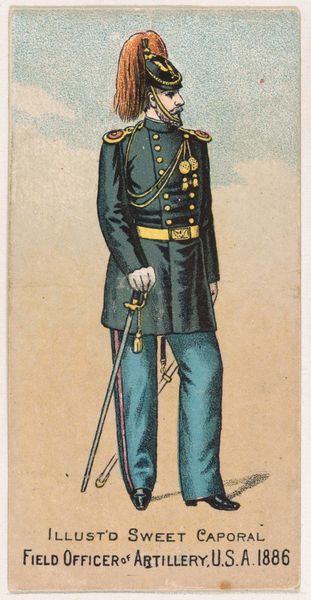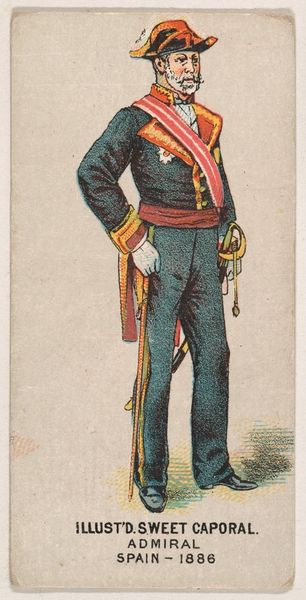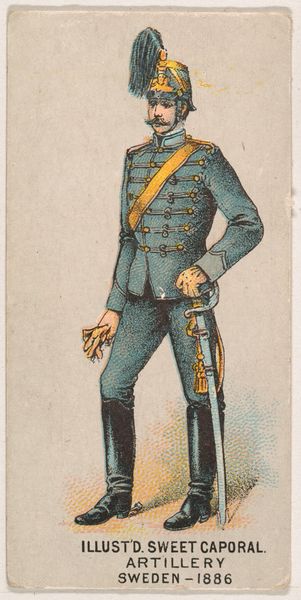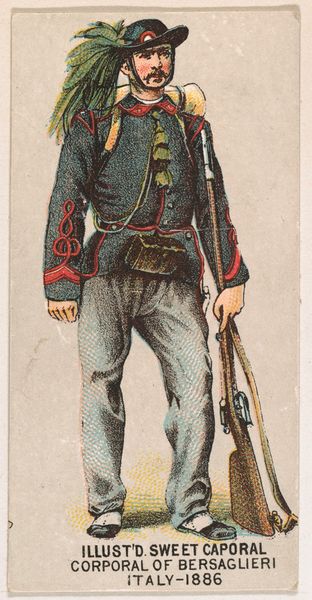
Infantry Officer, Italy, 1886, from the Military Series (N224) issued by Kinney Tobacco Company to promote Sweet Caporal Cigarettes 1888
0:00
0:00
drawing, print
#
portrait
#
drawing
# print
#
caricature
#
historical photography
#
genre-painting
#
academic-art
Dimensions: Sheet: 2 3/4 × 1 1/2 in. (7 × 3.8 cm)
Copyright: Public Domain
Curator: Here we have “Infantry Officer, Italy, 1886” from the Military Series by Kinney Tobacco Company, circa 1888, originally produced to promote Sweet Caporal Cigarettes. It’s a color print. Editor: My first thought is this piece feels subtly unsettling. Something about the rigid pose and the almost cartoonish detailing hints at a deeper commentary, maybe about the romanticization of military life. Curator: It's fascinating to consider the object itself—a cigarette card. These weren't meant for art galleries, but as ephemeral promotional items. We have to acknowledge that the image is intrinsically linked to consumer culture and the mechanics of late 19th century advertising. The materiality speaks of mass production, disposability. Editor: Exactly. And that intersection of military imagery with tobacco advertising... it screams of the era's power dynamics. These cards circulated widely, normalizing particular visions of masculinity and national identity. Whose identities are reinforced here, and for what consumerist purpose? How does this relate to Italian colonialism during this period? Curator: The artist has clearly employed an academic approach, using precise lines and detail which lend themselves to the printing process and the constraints of a small format. These techniques also suggest the company's intended audience appreciated skill, elevating what could be seen as simple advertisement to an accessible artform. Editor: While technically proficient, that attention to detail is ultimately serving to disseminate certain ideologies. The "Illust'd Sweet Caporal" text blares, underscoring its link to a manufactured product and also the manufactured ideal of militarized patriotism of the era. The material’s connection to capitalism taints the romantic view it may attempt to offer. Curator: Do you think viewers at the time read that differently, then? What about those who collected them? Were they passive consumers, or something else entirely? Were they conscious of the industrial processes and tobacco cultivation tied to their pastime? Editor: I believe their understanding would've been much different, though it may not seem so to us. Understanding who profited from these prints is crucial to understanding the larger global political dynamic. Even today the piece fosters a sense of detached observation as we ponder our roles within consumeristic societies. Curator: A lot to contemplate with a single cigarette card. Thank you for shedding light on how history and the social implications meet commerce. Editor: Agreed! Examining everyday objects can open broader understandings of the relationship between power, production, and cultural meaning.
Comments
No comments
Be the first to comment and join the conversation on the ultimate creative platform.
